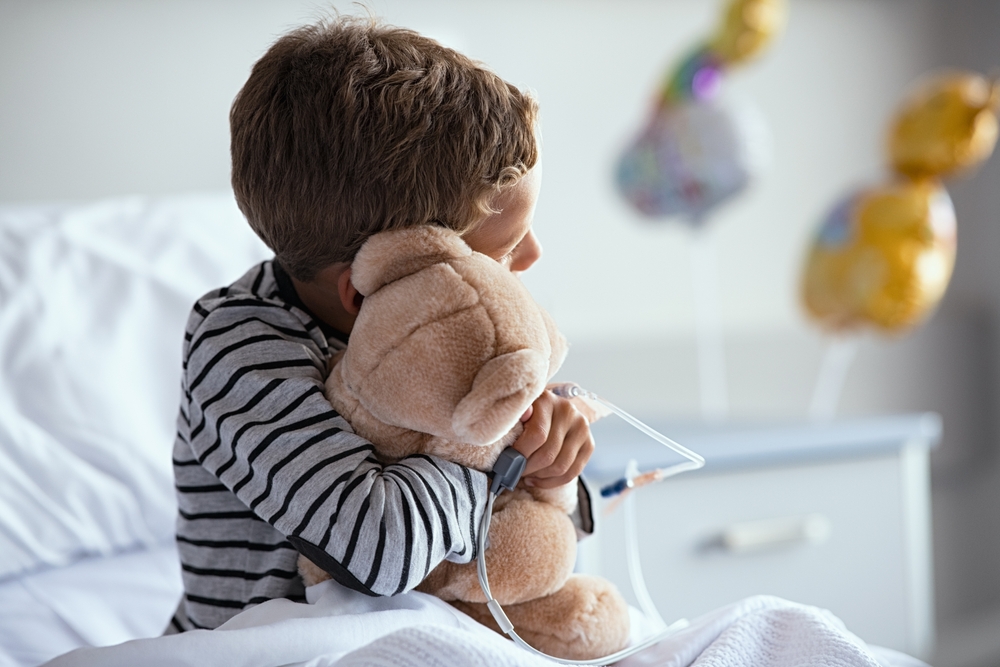Cystic fibrosis is a genetic condition that primarily affects the lungs and digestive system, leading to chronic respiratory issues, nutritional deficiencies, and a heightened risk of infections. The day-to-day management of CF can be demanding for both the child and their family, requiring a lot of ongoing treatments, lifestyle adjustments, and emotional support.
Effectively managing your child’s condition requires early intervention and a structured care routine to improve their quality of life. In this article, we will provide practical advice to help parents and caregivers navigate the complexities of caring for a child with cystic fibrosis at home.
Understanding Cystic Fibrosis and Its Symptoms
Cystic fibrosis is a genetic disorder that affects the body’s ability to produce sweat, mucus, and digestive enzymes. The condition causes mucus to become thick and sticky, leading to blockages in the lungs and digestive system. This buildup results in chronic respiratory problems and difficulty absorbing nutrients.
Children with CF face various symptoms, including:
- Persistent coughing and shortness of breath
- Frequent lung infections, such as pneumonia or bronchitis
- Difficulty gaining weight or malnutrition due to poor absorption of nutrients
- Salty-tasting skin
- Digestive issues like constipation, bloating, and poor growth
Managing these symptoms requires a proactive approach to treatments and a focus on maintaining overall health. With proper care, many children with CF can lead active and fulfilling lives.
Developing a Treatment Routine at Home

Consistency is key when managing cystic fibrosis at home. Establishing a structured treatment routine helps ensure that your child receives the necessary, consistent care to keep their symptoms under control.
Airway Clearance Techniques
One of the most important aspects of CF care is keeping the airways clear of mucus. Techniques such as chest physiotherapy (CPT) or using a percussion vest can help break up and remove mucus from the lungs. Mucus buildup can lead to infections, so it’s essential to have daily CPT sessions.
Medications
Children with CF often need multiple medications, including bronchodilators, inhaled antibiotics, and pancreatic enzymes. Use daily reminders or a medication organizer to stay on top of these meds, and work with your child’s healthcare team to adjust dosages as needed, and ensure that all prescriptions are refilled on time.
Balancing Family Life
Integrating treatments into your family’s routine can be challenging. Find ways to make treatments part of daily activities, like performing airway clearance while watching TV or listening to music. Keeping treatments predictable helps your child know what to expect.
Nutrition and Dietary Tips for Children with Cystic Fibrosis
Children with cystic fibrosis often struggle with malabsorption due to their inability to properly digest and absorb fats and nutrients. To maintain healthy growth and energy levels, they typically require a high-calorie, high-fat diet.
High-Calorie Meals
Plan meals that are rich in calories and healthy fats, (like avocados, nuts, and full-fat dairy products). Snacking throughout the day can also help your child meet their nutritional needs. Keep in mind that children with CF burn more calories than their peers due to their increased energy expenditure from breathing and fighting infections.
Pancreatic Enzymes
Many children with CF take pancreatic enzyme supplements to help them digest food more effectively. Ensure that your child takes these enzymes with every meal and snack to aid in proper digestion and nutrient absorption.
Hydration
Children with CF lose more salt through sweat, so staying hydrated in essential. Encourage your child to drink plenty of water and consider adding electrolyte-rich drinks, especially after physical activity.
Making Meals Enjoyable
Try involving your child in meal preparation to make eating more engaging and a positive experience. Offering a variety of foods in small portions can help if your child has a poor appetite or gets full quickly.
Managing Respiratory Health
Lung health is a top priority for children with cystic fibrosis. Keeping their airways clear and preventing infections is crucial for maintaining respiratory function.
Regular Treatments
In addition to airway clearance techniques, children with CF may need inhaled medications or nebulizer treatments to open the airways and fight infections. Consistently following these treatment protocols will help keep your child’s lungs healthy.
Exercise
When possible, physical activities can help improve lung function by promoting deeper breathing and better mucus clearance. Encourage your child to participate in activities they enjoy, whether it’s walking, swimming, or light stretching.
Preventing Infections
Good hygiene practices, like frequent handwashing and sanitizing shared surfaces, can reduce the risk of infections. Avoid exposing your child to crowded places during cold and flu season, and be mindful of keeping their living environment clean and free of smoke or dust.
Monitoring Symptoms
Be vigilant about monitoring any changes in your child’s symptoms, like coughing, breathing patterns, or energy levels. If you notice signs of a lung infection, like increased mucus production, fever, or wheezing, contact your healthcare provider immediately.
Emotional Support for Your Child and Family
It’s important to prioritize emotional well-being alongside physical care while caring for a child with cystic fibrosis.
Open Communication
Encourage your child to express how they’re feeling to allow them to be understood and supported. Be honest about the challenges of CF but remain hopeful and focus on the positive aspects of their care.
Building a Support Network
Having a strong support system is essential for both you and your child. Reach out to support groups, family, and friends who understand the challenges of chronic illness. Connecting with others who are going through similar experiences can help you feel supported and less isolated.
Seeking Professional Help
If your child or family is struggling emotionally, consider seeking counseling or therapy. Mental health professionals can offer coping strategies and provide a safe space for your child to express their emotions. Many families benefit from family therapy sessions that address the collective emotional impact of CF.
Working with a Care Team
Managing cystic fibrosis requires a multidisciplinary approach, involving a range of healthcare professionals. Collaborating closely with your child’s care team is essential for ensuring the best possible outcomes.
Healthcare Professionals
Your child’s care team may include pediatricians, pulmonologists, dietitians, and physical therapists. Regular check-ups and open communication with these professionals help keep your child’s health on track. Keep a record of your child’s medications, treatments, and any changes in symptoms to share with the care team.
Home Health Support
Home healthcare agencies can provide pediatric home health support for managing CF at home. It allows parents to share the responsibility over their child’s medical health and give peace of mind while balancing other family obligations.
Americare Can Help
With the right medical, nutritional, and emotional support, you can help your child with cystic fibrosis lead a healthy, fulfilling life. Building a strong support network and staying in constant collaboration with healthcare professionals will keep your child’s health in check.
At Americare, our pediatric home healthcare services help children throughout New York get the professional treatments and medical attention they need while offering invaluable help and respite to parents.
Reach out to us today to find out more about how you can help support your child with cystic fibrosis at home.

